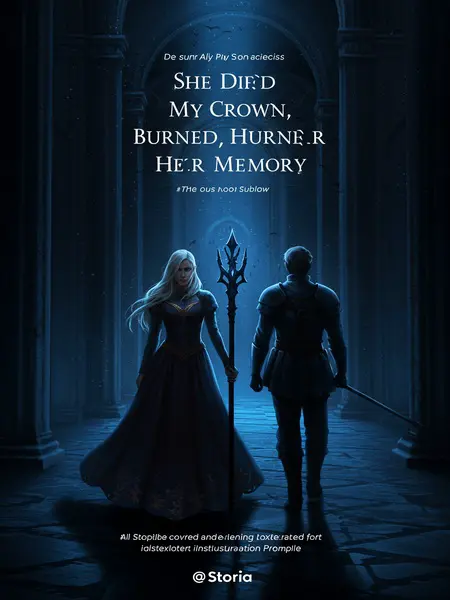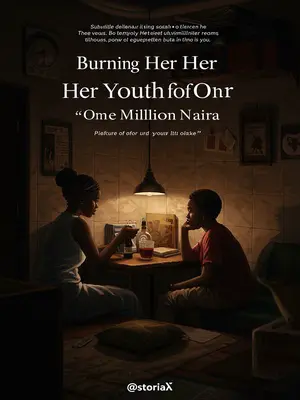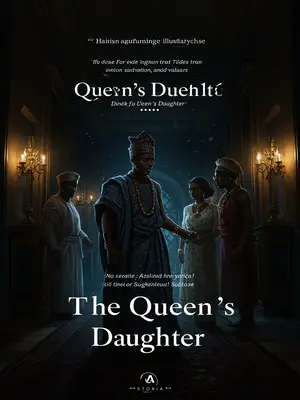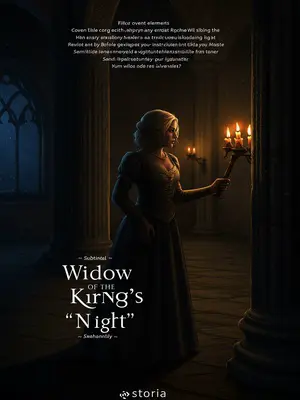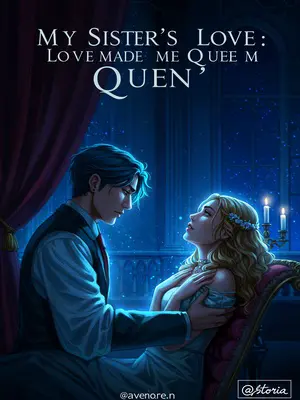Chapter 1: Ashes of Loyalty
My only friend is a woman who crossed over into this world. She always said, ‘Na only you carry me come this world, Fola. I no fit leave you.’
There was something about the way she would look me dead in the eye, stubborn as old palm wine, and declare it without shaking. In this wide, sharp-edged world, where everybody is busy looking after their own, Ifeoma carried my matter on her head as if it was basket of oranges. You could see her mission in the small things she did – the way her voice softened when she spoke to me, or how she always stood between me and trouble, even when trouble was wearing agbada and holding a staff of office.
She believed in me, protected me, and even gave everything she had to help my husband become king.
Some people talk about loyalty, but Ifeoma showed it with her hands. She gave her savings, her prayers, her midnight vigils, her laughter, and even the beads on her wrist just so that Musa Danjuma could wear the crown. In the palace, people whispered, but only I knew the fire she carried for me—she was the lamp that refused to die out when the wind howled.
At the end of the story, she found someone who truly loved her.
Ifeoma’s own joy, after so many storms, was like harmattan rain – rare, unexpected, but real. In the end, it was as if fate finally remembered her. The way she smiled, her eyes dancing, when her own heart was finally held gently. It was the kind of happiness that made people say, “E go better.”
She said this place made her feel warm, and she wished to stay in this world.
She would touch her chest and say, “The sun here feels different.” Even though she used to complain about the dust and the mosquitoes, it was the laughter of children, the smell of boiling jollof from street vendors, and the soft hum of evening prayers that made her decide. “This world,” she said, “is where my soul finally breathes.”
But later, I rushed back from the border, riding through the night on a battered okada.
That night, the sky itself was weeping. I sped down the red earth road, heart pounding like bata drum. The old okada rattled beneath me, every pothole jarring my bones, but I did not care. The air stung my face, thick with the smell of roasted corn and burning firewood. All I could think of was Ifeoma, calling my name in the wind.
Yet all I found was her pale, thin body lying alone in the white casket, cold as harmattan stone.
When I entered the room, everything went silent – even the flies froze in the air. Ifeoma’s skin was so pale, as if the last colour had drained away with her laughter. The white casket looked too big for her, as if it could swallow her whole. I touched her fingers. Cold, stiff. My heart squeezed.
Beside the casket, her husband stood there in a daze, speechless.
He looked empty, like a broken calabash. His lips trembled, but no words came. Even the mighty Musa Danjuma, the lion of the council, was brought low by the finality of death.
The boy’s discomfort had been building all day—shuffling his feet, avoiding his mother’s wild, haunted eyes in front of the mourners. Earlier, when Ifeoma had screamed and torn at her hair in front of his classmates, his face had burned with shame. Now, her young child whispered with relief, "Thank God o, I don't want such a mad mother."
The words sliced the air sharper than a razor. The boy’s eyes, usually so bright, flickered with relief as if a heavy load had been dropped from his shoulders. The other women in the room exchanged glances, some nodding in quiet agreement. I felt my blood boil.
I looked at the woman standing next to their father and son, pretending to cry.
Her sobs were too loud, too perfect. She dabbed her eyes with white lace handkerchief, but her gaze was dry, darting about to see who was watching. My spirit recoiled from her as if from bitter leaf.
I thought to myself, I no longer need to pretend.
Inside me, something snapped. All these years, I had played the role expected of me—dignified, measured, a proper queen mother. But now? For Ifeoma, all that pretense scattered like pap in hot water. Let them see my true face.
After today, they will see what a true madwoman looks like.
Let them tremble. Let them whisper. If they want madness, I will give them madness that will echo through the generations. Let them carry my name to their dreams—let the ancestors hear my wahala and tremble.
